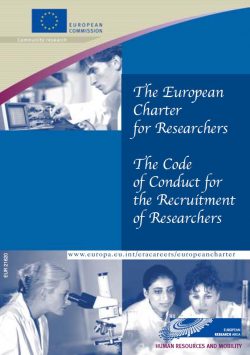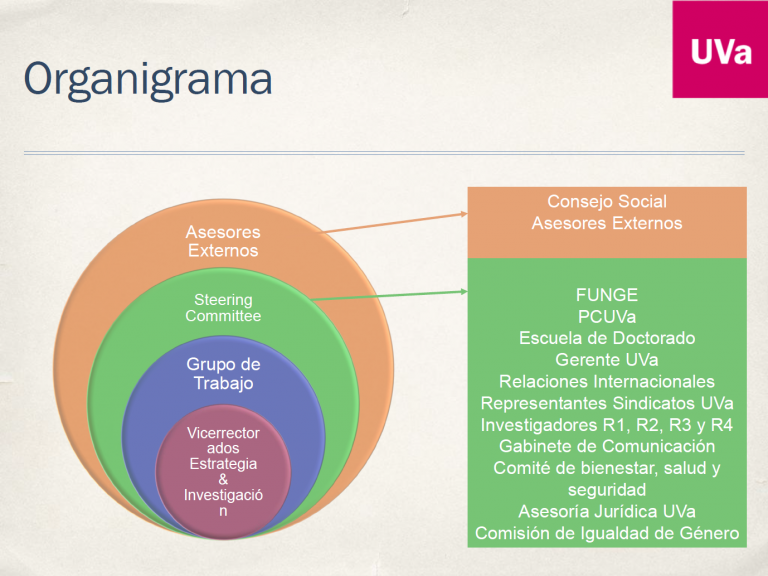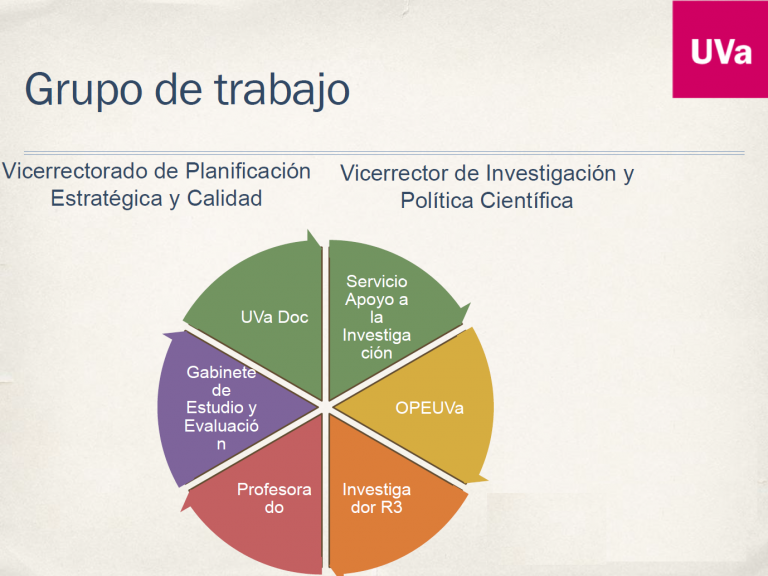HR excellence in research
Any organization relies on its resources. Universities and research centers are no different. Material and human resources are the basis for creating innovation, reinventing the future, prospering and fostering society.
The European Research Area (ERA) since 2000 has created the research framework for research, development and innovation in Europe, based on the idea of free movement, openness and talent.
The creation of this enabling environment for research was linked to the need for basic recommendations for attracting the best possible talent. Thus, in 2005, the European Commission adopted a European Charter for Researchers and a Code of Conduct for the Recruitment of Researchers, the so-called "Charter and Code".
Linked to this, "EURAXESS - Researchers on the move" was created as a portal to provide information, support and access to jobs in Europe.
The HR Excellence Award provides quality recognition by the European Commission that the awarded institution complies with the Principles of the Charter and Code for Researchers and has identified its own limitations and provided appropriate future actions for improvement.
The University of Valladolid has decided to follow this path of quality assurance in Research and Selection. The journey has started for us in 2017.
Here you can find the general presentation about the process that will be carried out for UVa.
European Charter and Code of Conduct for Researchers
Equity is fundamental to enjoy the same rights and obligations in any European country.
The European Commission detected that, somehow, the research careers of European researchers were fragmented at all levels (from local to international). This caused/causes difficulties in developing a suitable environment to thrive through research and innovation initiatives.
To resolve this situation, in 2005 the European Commission created two basic documents:
- The European Charter for Researchers.
- The Code of Conduct for the Recruitment of Researchers.
To facilitate that the same rights and obligations are enjoyed in any European country.
There are a total of 4 main areas and 40 principles (recommendations).
1. Freedom of research
2. Ethical principles
3. Professional Responsibility
4. Professional attitude
5. Contractual and legal obligations
6. Accountability
7. Best practices in research
8. Dissemination, exploitation of results
9. Public participation
10. Non-discrimination
11. Evaluation/assessment systems
12. Recruitment
13. Recruitment
14. Selection
15. Transparency
16. Valuing merit
17. Variations in the chronological order of CVs
18. Recognition of mobility experience
Recognition of qualifications
20. Seniority
21. Postdoctoral appointments
22. Recognition of the profession
23. Research environment
24. Working conditions
25. Stability and permanence of employment
26. Funding and salaries
27. Gender balance
28. Career development
Value of mobility
30. Access to career counseling
31. Intellectual Property Rights
32. Co-authorship
33. Teaching
34. Complaints / appeals
35. Participation in decision-making bodies
36. Relationship with supervisors
37. Supervision and management functions
38. Continuing Professional Development
39. Access to Research Training and Continuing Development
40. Supervision
You can download the full text of the "Researchers' Charter and Code" here.

The 'Human Resources Strategy for Researchers' is the main tool that the European Commission has created to assist in the implementation of the Charter and the Code in its policies and practices in research institutions and funding organizations that voluntarily choose to adopt it.
The main initial steps to obtain the award are:
- Initial internal assessment and preparation of the process ('zero' step).
- Sign the letter of endorsement and notification of the beginning of the process.
- Designing the gap analysis and action plan.
- Evaluation of the Commission.
The University of Valladolid has started the process in early 2017 with the internal evaluation. We are committed to obtain the award. Help us with your comments, ideas, energy!
All prepared documents can be accessed here:
 The members of the working group are:
The members of the working group are:
- María Moncada Saracíbar
- Angel Llorente
- Laura Palacio
- Clarisa Pérez Goyanes
- Juan García Serna
- Andrés Hombría
- Cristian Pascual
- Antonio Martín

The work to achieve recognition did not start now, it started years ago with the help and important work of many people at the University of Valladolid.
Here is an example of basic documents that are already adopted at the University of Valladolid and that will help in the certification process:
- University of Valladolid Code of Good Research Practices
- Code of Good Practice in the direction of Doctoral Theses
- University of Valladolid Ethics Committee
- Open Access Policy
- UVa Repository
- Indications of the quality of the doctoral thesis
- UVa Doctoral School Regulations
- Scientific production procedure
- Patent regulations
- Doctoral dissertation supervisor accreditation agreement

